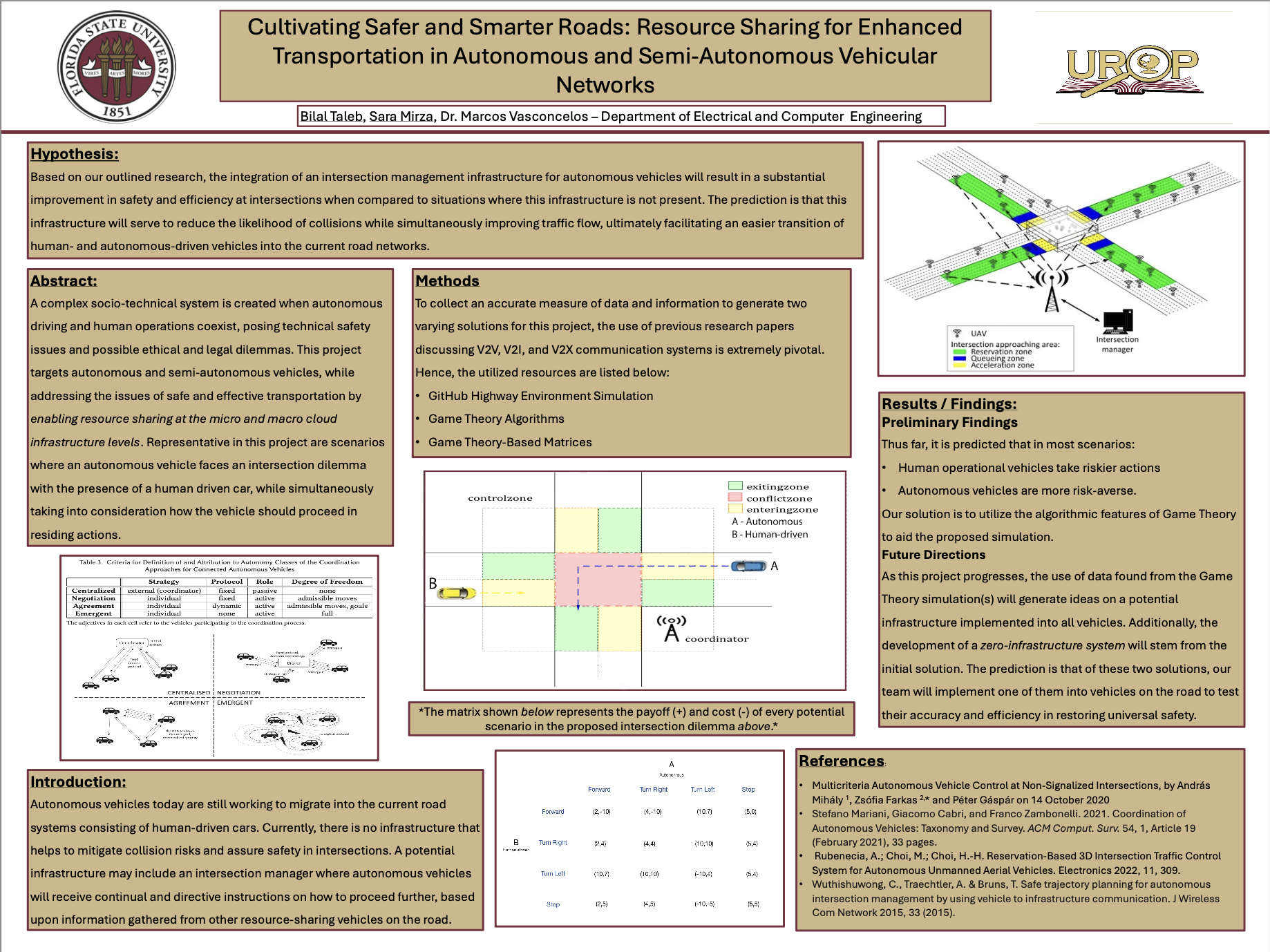Research Symposium
24th annual Undergraduate Research Symposium, April 3, 2024
Sara Mirza Poster Session 3: 1:30 pm - 2:30 pm /3
BIO
I am a second-year student majoring in IT with a minor in Innovation, with the intention to graduate in Spring 2025. My career interests lie within the field of Network Security along with a relatively new interest in relation to the Automotive Tech field. I have been an active member of the Cybersecurity Club at FSU and have participated in ethical hacking events to strengthen my understanding of preventing system vulnerabilities from being exploited. Furthermore, I am actively conducting research on Resource Sharing to Enhance Safety through Vehicular Networks in Autonomous and Semi-Autonomous Vehicles. Using Game Theory algorithms, my research team and I plan to simulate various scenarios where the safety of our roads is pushed to its limits, and better find a way to implement a solution.
Cultivating Safer and Smarter Roads: Resource Sharing for Enhanced Transportation in Autonomous and Semi-Autonomous Vehicular Networks
Authors: Sara Mirza, Marcos VasconcelosStudent Major: Information Technology
Mentor: Marcos Vasconcelos
Mentor's Department: Electrical & Computer Engineering Mentor's College: FAMU-FSU College of Engineering Co-Presenters: Bilal Taleb
Abstract
One of the promises of autonomous or AI-aided vehicular networks is that transportation tasks will become much more efficient and safe. New and advancing technologies make these promises possible, with sensors for perception, classification algorithms, and model-based predictive systems. However, a complex socio-technical system is created when autonomous driving and human operations coexist, evidently posing issues with technical safety as well as possible ethical and legal dilemmas.
Although most drivers do not have access to a full autonomy control loop, a large percentage of cars on the American market today are equipped with varying degrees of sensors that detect various surroundings and promote safety features. This project targets autonomous or semi-autonomous vehicles, while further addressing the issues of safe and effective transportation by enabling resource sharing at the micro and macro cloud infrastructure levels.
During this project, our team has worked on specific case scenarios, where an autonomous vehicle faces an intersection dilemma, while simultaneously taking into consideration how the vehicle should proceed in residing actions. With this understanding from simulations and predictive-based models, we plan to begin developing a zero-touch vehicular network infrastructure to share sensorial data available in nearly all conventional vehicles, whilst maintaining awareness of the diversified roads in our society.
Keywords: Autonomous Vehicle, Engineering, Computer Science


